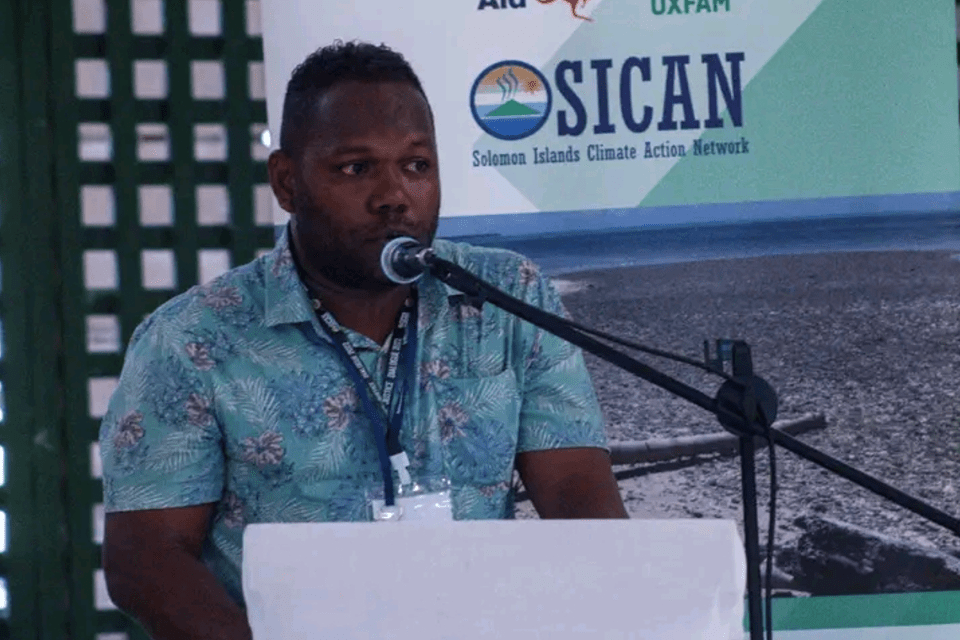BY JOHN HOUANIHAU
SOLOMON Islands capital, Honiara is expected to generate its primary energy from off-grid renewable energy by 2030.
“So back in 2019, Japanese International Cooperation Agency (JICA) had worked closely with the Ministry of Mines and Energy with Solomon Power to develop the road map and was previously launched on July 22, 2022,” the Solomon Power Planning Engineer, Palmer Anisi told the participants of this year’s 2022 Annual Climate Justice Dialogue and Symposium.
“Up until 2030 in Honiara, we have around 25 megawatts of solar farm for Honiara that consist of grid connection solar farm to fit into the existing solar farm in Honiara.
“That includes the main project that is currently underway, the Tina Hydro project; Tina Hydro will take up 75% of the load, the forecasted load into the project commissioning day of Tina.
“From the 25 megawatts solar farm, we have a mixture of battery that will be installed in the grid for the stability and peak swift, and it’s about 8 megawatts,” he said
Anisi said that Solomon Power still faces a lot of challenges in terms of resources.
“Land as the major one and Solomon Power still follow closely with the road map to try to achieve the ambition of the government and to give 100% renewable energy for Honiara by 2030,” he said when explaining 2030- renewable energy outlook for Honiara at the Climate Justice Dialogue in Honiara.
He said that the target is by 2030 Honiara should have 100% renewable energy generation and by 2050 it should cover the whole nation.
Environment Media understands, a cited report from the Government Communication Unit (GCU) quoting Prime Minister Manasseh Sogavare during the previous launching of the Solomon Islands Renewable Energy Roadmap on July 22, 2022, saying it is time to change the conventional ways, we manage and deliver our electricity services to transform our economy.
“We need innovation and flexibility to develop new business models to decarbonize our electricity sector and reduce our dependency on fossil fuel to deliver sustainable and affordable energy and therefore, to meet our climate commitments under the Sustainable Development Goal 7 (SDG 7 or Global Goal 7), which is one of 17 Sustainable Development Goals established by the United Nations General Assembly in 2015.
“Global Goal 7 aims to “Ensure access to affordable, reliable, sustainable and modern energy for all.
“It is a lesson to pick on and diversify from this century-old fossil fuel and develop our own abundant indigenous renewable energy resources.
“The new roadmap provides the technical pathway and implementation framework to reach 100% renewable energy by 2030 and would involve a major reform in the energy sector to create an enabling environment for the participation of Independent Power Producers (IPPs) to achieve the target.
“The major reforms in the energy sector will be in the areas of policy, legislation, regulation, institutional, financial, and management arrangements,” Sogavare said.

